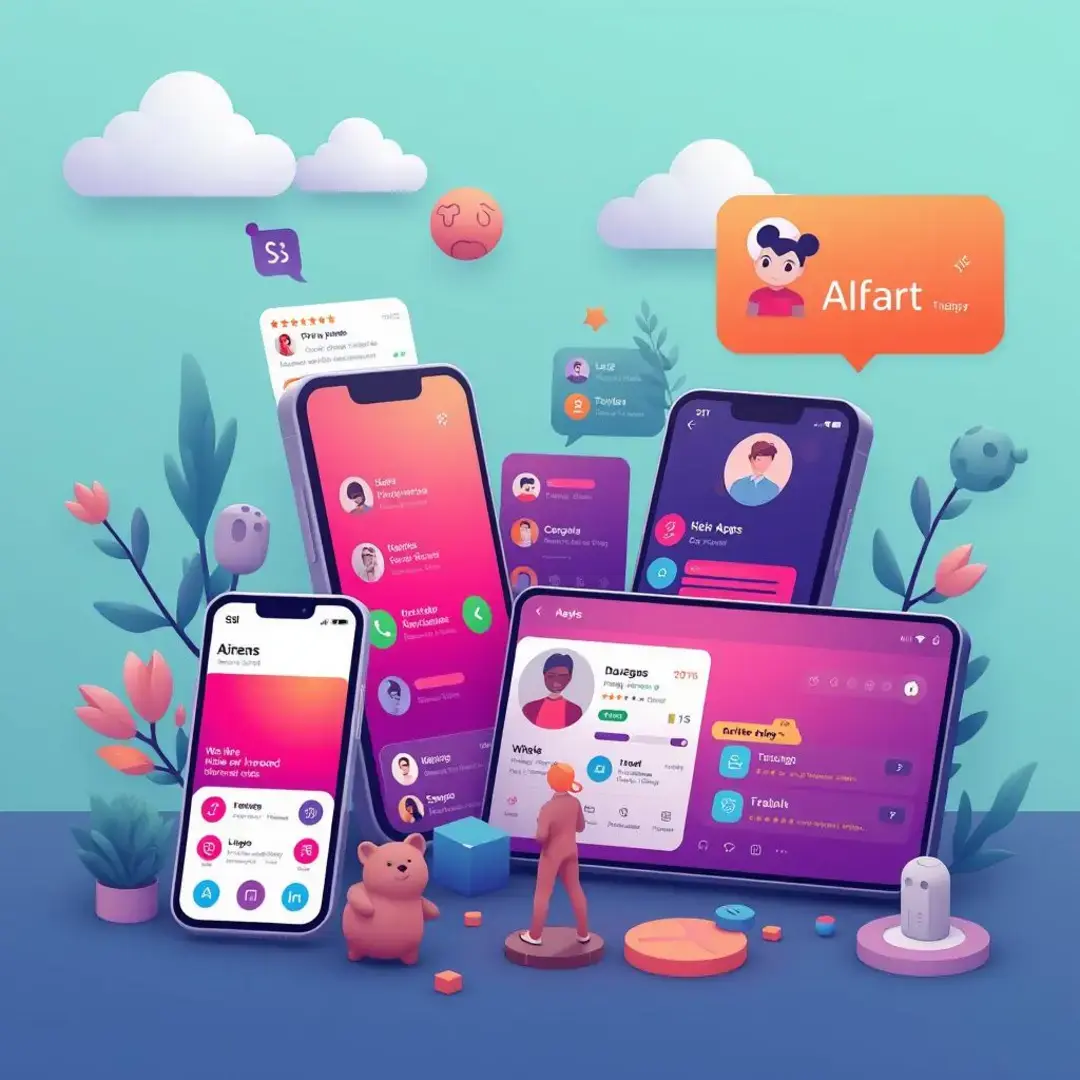Campaign Personalization
Introduction

Overview of campaign personalization in marketing automation
In the fast-evolving landscape of marketing automation, the significance of campaign personalization cannot be understated. It entails tailoring marketing messages and strategies to meet the distinct preferences of individual customers, thereby enhancing interaction and engagement. By leveraging data analytics and artificial intelligence, companies can dissect consumer behaviors and craft messages that resonate deeply with them.
Advanced campaign personalization goes beyond simply addressing customers by their names in emails. It involves a multifaceted approach that incorporates user behavior, demographic information, and purchase history to create a holistic view of the customer. This intricate personalization can manifest in various forms, from content recommendations based on past purchases to personalized email campaigns that address specific customer needs.
As a core component of marketing automation, campaign personalization allows for an efficient and effective communication strategy that engages users on multiple levels. The blend of automation and personalization not only streamlines workflow but also ensures messages are relevant and engaging. This dual approach greatly enhances the overall customer experience, fostering long-term loyalty and satisfaction.
Key Trends in Campaign Personalization

Emerging trends
Hyper-personalization is one of the leading trends in campaign personalization today. By using advanced AI algorithms and big data, marketers can analyze complex customer data to deliver highly tailored experiences. This approach leads to greater relevance, enabling brands to connect with their customers in deeply meaningful ways, thus driving better engagement.
AI-powered personalization is revolutionizing how brands interact with customers. With capabilities like machine learning and predictive analytics, AI can forecast user behavior and suggest recommendations in real-time. This form of personalization ensures that the right products or content reach customers at the right time, significantly enhancing user experience.
Real-time personalization refers to the dynamic customization of content based on immediate user behaviors and interactions. It’s a powerful tool for marketers, allowing them to respond instantly to the user’s context, thus maintaining engagement levels. For instance, if a user shows interest in a particular category on an e-commerce site, real-time personalization can showcase relevant products and promotional offers immediately.
Industry impact
The direct impact of personalized campaigns on customer engagement is substantial. Brands that adopt personalized strategies witness an uptick in customer interactions, as audiences appreciate communications tailored specifically for them. Higher engagement not only improves customer satisfaction but also fosters a sense of connection with the brand.
Personalization plays a critical role in enhancing conversion rates. By presenting tailored offers to customers, businesses can motivate users to take desired actions more effectively. Evidence shows that personalized marketing can lead to higher sales, as customers are more likely to respond positively to messages that speak directly to their needs and interests.
Through increased engagement and conversion rates, personalized marketing campaigns significantly boost marketing ROI. Companies that leverage advanced personalization report improved returns on their marketing investments, highlighting the effectiveness of targeting strategies. This demonstrates that personalized communication isn’t just a trend; it’s a necessity for modern marketing success.
Challenges and limitations
Despite the benefits of campaign personalization, marketers face challenges, especially concerning data privacy and security. Striking a balance between personalized experiences and user privacy is crucial, as consumers are becoming increasingly aware of data practices. Adhering to regulations like GDPR is essential to maintain customer trust while personalizing campaigns.
Another significant challenge in personalization lies in maintaining relevance over time. As customer preferences and behaviors evolve, marketers must continually adjust their strategies to avoid outdated messages. Regularly updating customer data and refining segmentation is crucial to ensure ongoing relevance in personalized campaigns.
Over-personalization poses another potential pitfall; while tailored messages can enhance engagement, excessive targeting can lead to customer fatigue. When users feel bombarded with too many personalized offers, it may lead to disengagement rather than fostering loyalty. Marketers must find the right balance to optimize engagement without overwhelming their audience.
Future Outlook

Future developments
As technology advances, predictive personalization will play an even larger role in shaping marketing strategies. This approach involves anticipating customer preferences based on historical data, thus allowing brands to present tailored experiences before the customer even expresses a need. The evolution of predictive analytics promises to enhance the effectiveness of campaigns, leading to greater forecasting accuracy and audience segmentation.
Contextual personalization is set to become a game changer, allowing marketers to craft messages that consider the specific context in which a customer interacts with a brand. By leveraging factors such as location, time, and device type, brands can deliver highly relevant messages that resonate with customers. This nuance represents a significant shift in personalization strategies, leading to richer user experiences.
Omnichannel personalization focuses on providing a seamless and integrated customer experience across all platforms and touchpoints. Future campaigns will likely harness data from various channels—such as email, social media, and in-store interactions—to create a cohesive personalization strategy. This holistic approach will ensure brand consistency and deepen customer relationships, regardless of how users engage with the brand.
Market predictions
The market for personalization is expected to experience tremendous growth in the coming years as businesses recognize its substantial impact on customer relationships. Increased investments in technology and data analytics will fuel this growth, empowering brands to adopt more sophisticated personalization techniques. As competition intensifies, those leveraging advanced personalization will stand out in the crowded marketplace.
Furthermore, the adoption rate of advanced personalization technologies is projected to rise sharply. More brands will integrate robust AI solutions that facilitate deeper insights into customer behavior, improving overall marketing effectiveness. This shift highlights the importance of embracing innovation to stay competitive in the rapidly evolving digital landscape.
Potential impact on users
A key potential impact of advanced campaign personalization on users is an enhanced experience that caters to their specific needs and preferences. As a result, customers will feel more valued and understood, ultimately improving satisfaction and loyalty. Personalized interactions create a sense of intimacy between brands and consumers, leading to a more fulfilling customer journey.
Moreover, by delivering tailored experiences, brands can cultivate increased customer loyalty. When users consistently receive relevant content and offers, they are more likely to return for future purchases and advocate for the brand among their peers. Loyalty programs that leverage personalization strategies will reinforce this commitment, transforming casual customers into brand advocates.
Finally, advanced personalization will facilitate more relevant and targeted advertising strategies. Brands will have the capability to deliver ads that directly align with user interests, effectively reducing promotional clutter. This targeted approach ensures that marketing efforts yield higher engagement and conversion rates, translating into better overall marketing outcomes.
How to Choose the Right App

Step-by-step guide
Start by assessing your specific personalization needs. Analyze your current marketing objectives, consumer insights, and the type of experiences you wish to deliver. Understanding these elements will clarify the kind of app functionalities required to achieve your goals.
Next, conduct a thorough evaluation of available personalization apps on the market. Review their features, user reviews, and case studies to understand how they perform in real-world scenarios. Comparing options will help identify a solution that meets your requirements effectively.
Once you’ve settled on a platform, the implementation phase begins. Follow best practices during the integration process and utilize testing phases to monitor performance. Experiment with various personalized campaigns to identify which strategies yield the best results while continuously refining your approach based on feedback.
Conclusion

In conclusion, campaign personalization stands as a pivotal element in the marketing automation landscape. As companies continue to evolve their strategies towards personalized communication, understanding trends, challenges, and future developments becomes essential. By choosing the right tools and maintaining an eye on emerging technologies, brands can enhance customer experiences, drive loyalty, and maximize marketing success.
Factors to consider
When choosing a campaign personalization application, it is vital to consider its compatibility and integration with your existing marketing stack. A seamless integration will ensure data flow between systems, optimizing operations and avoiding the fragmentation of customer data. Ensuring that the app fits within your ecosystem will facilitate smoother implementation and better results.
Additionally, assess the specific personalization capabilities offered by each application. Look for features like dynamic content personalization, audience segmentation, and automated performance tracking. Depending on your marketing goals, these features should align with your objectives and allow for evolving personalization tactics.
Data security and compliance are critical considerations in today’s marketing landscape. Ensure that any app you choose adheres to regulatory requirements and has measures in place to safeguard user data. Vigilance in this area will protect not only your company but also your customers’ personal information, fostering trust.
Lastly, evaluate the pricing structure and scalability of the personalization app. Ensure that the investment aligns with your budget and can accommodate your growing business needs. A scalable solution will allow for expansion as your requirements evolve, making it a more sustainable long-term choice.





